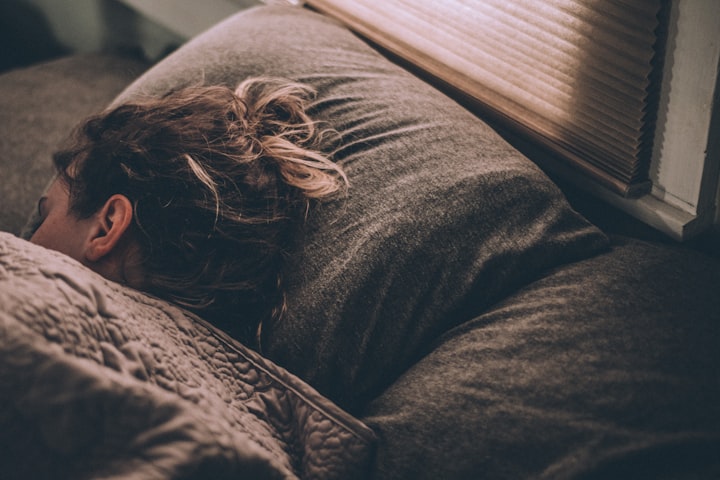6 Reasons to Sleep on Your Back
Do you sleep on your back?

1. Slows down the aging of the complexion.
During sleep, the facial muscles relax. Thus, it ensures free access of oxygen to the skin of the face. In the short term, every morning you will look fresh and rested, and in the long run - the first wrinkles will appear later.
2. Increase in height.
Did you think that at the age of 21, growth slows down? This is a misconception.
I suggest you experiment: measure your height before bed and in the morning. I am convinced that in the evening you are 1–2 cm lower. But this has nothing to do with muscle fatigue, although it seems that the muscles are difficult to stretch after a hard day's work.
The secret is that the intervertebral discs, which are the cushioning system of the spine, are restored during the night. As soon as the pressure on them is reduced, they accumulate moisture and in the morning they become dense and elastic. But in the evening, feeling a constant vertical pressure during the day and under the force of attraction, they lose their strength and shrink in volume.
No matter how strong your back muscles are, you will not be able to lie down until morning. Of course, the strength of the deep muscles, which maintain the spine, is very important, but without restoring in a correct position during sleep, when the backrests best, they will not add extra inches to your stature.
3. Improving digestion.
During sleep on your back, there is practically no pressure on the stomach and other organs in the abdominal cavity. Thus, the risk of eliminating the gastric contents in the esophagus is reduced, therefore, we avoid the appearance of heartburn.
It is a very important aspect because the greatest amount of gastric acid is secreted between 10 p.m. and 2 a.m. when the production of saliva is practically completely stopped. Thus, over time, gastric acid is not neutralized and can damage the esophagus.
Those prone to heartburn are advised to sleep on their backs, and for an added effect - to lift their head from the bed.
4. Prophylaxis of neck problems.
Sleeping on your back is the most beneficial position for your back and neck. It is important to choose the right pillow.
How to choose a pillow height: When lying on your back, the center of your ear, the center of your shoulder joint, and the center of your hip joint should be on the same line. At the same time, the line must be parallel to the surface on which you are lying. Simply put, the face should be parallel to the floor.
How to choose the length of the pillow: Both the head and the neck must fit freely on the pillow. There must be room left after the crest.
5. Stabilization of the condition in case of intervertebral hernias.
In most cases of intervertebral hernias, sleeping on your back is the most appropriate position. But there are exceptions when the doctor forbids this.
In this case, in addition to choosing the right pillow, special attention should be paid to the mattress.
How to choose a mattress:
It should not be too soft so that the spine does not sink into the perineum, causing tightening of the discs and eating disorders of the spine. This affects the natural curves of the spine and aggravates back problems.
It doesn't have to be too stiff either. A surface that is too hard, such as the floor, will not allow the body to take the most convenient position.
Sleeping on the floor.
If you are interested in finding the optimal sleeping position, then you have probably heard about the recommendation to sleep on the hard floor with a roller under your neck.
If you are a weightless young lady, then such a position suits you. The roller can be replaced with a small pillow, only a few centimeters high.
But if you are a vigorous man, with developed muscle mass, then sleeping on the floor without a pillow and only with a roll under your head is contraindicated. Those who know on their skin what "kyphosis" means should avoid this position, regardless of gender. The cervical vertebrae and intervertebral discs will certainly suffer. Choose a pillow of medium size, quite strong, and a mattress just as strong.
Flexible people's sleep
Very flexible people are also forbidden to sleep on the floor. After such asleep, the muscles and ligaments, which are extremely elastic, relax and stretch even more. In the morning, you'll have to get off the floor.
If you have a healthy back, you will feel a slight pain in your whole body and a feeling of weakness.
But if you suffer from a hernia or protrusion, then you will suffer. The ligaments, being well relaxed, will not be able to fully maintain the spine in an upright position. Then, even the most harmless movement, done incorrectly, will cause severe pain or immobilize you for a few days.
6. Relieving low back pain
I tell you the truth, in the acute period, it is unlikely that you will generally be able to fall asleep. But on days when you feel good, try to sleep on your back.
Put a large pillow or roll under your knees. This will reduce the lumbar curve and relax the muscle tone in the problem area.
These symptoms worsen when we sleep on our backs. But if spinal problems force us to sleep on our backs, then it's better to snore than to let the disease get worse.
How to control your position during sleep?
Position control during sleep is a habit that is gradually learned.
To begin with, set yourself the task of learning to lie down correctly on your back. It is recommended not to simply fall on the bed, but to strive to lie on the surface as much as possible. Lie down, push your heels on your own, extend your neck, push your head in the opposite direction of your heels.
Do not pull the shoulder blade towards the spine, allow the thoracic vertebrae to feel support from below. Once you are in a comfortable position, sit in it for a while. Start at 5 minutes and gradually extend the time. One day, better in the evening, you will fall asleep.





Comments
There are no comments for this story
Be the first to respond and start the conversation.